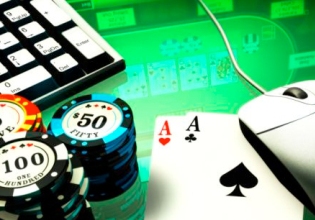
A series of bills that would have legalized gambling, including online poker, in the state of Hawaii have all been stopped dead in their tracks. Hawaii is one of two states, along with Utah, that has no forms of legalized gambling. It is not for a lack of trying, however, as around 150 attempts have been made to make some sort of gambling legal in the state over the last three decades.
The bill that would have been of the most interest to online poker players was House Bill 2422, sponsored by Representatives Joseph Souki, Faye Hanohano and Angus McKelvey, which would have established a Hawaii internet lottery and gaming corporation to operate internet gaming in the state. The corporation would “provide consumer protections and capture additional revenues for the benefit of the State that are currently flowing offshore to unregulated internet gambling operations.”
Unlike many of the states that have introduced internet gambling measures, H.B. 2422 would have set the legal internet gambling age at 18, not 21. Gamblers would be required to be within state borders, though language in the bill left open the possibility of allowing people from outside Hawaii to play when a “legally compliant mechanism is established.”
The bill required the corporation to provide problem gambling information on its website, including a hotline, self-exclusion services, and the ability for players to set loss limits, wagering limits, deposit limits, and playing time limits.
Also in the bill were instructions on what will be required of a potential online gambling provider. There is nothing unusual on that front – providers must be able to show that they can verify customers’ ages and locations, ensure the security of data, and ensure game fairness, among other things.
State revenue from internet gambling would have been put into a special fund and allocated in the following way: 35 percent to public school capital improvements, 25 percent to the University of Hawaii system capital improvements, 10 percent to scholarships and loan repayments for medical students who commit to practicing medicine in the state for at least 10 years, 10 percent to the University of Hawaii John A. Burns School of Medicine family practice rural residency program, 10 percent to watershed protection, 5 percent to problem gambling programs, and 5 percent to the administer the special fund.
The internet gambling bill was spurred on, in part, by the U.S. Department of Justice’s pre-Christmas clarification of its opinion of the Wire Act of 1961, which said that the Act only made online sports betting illegal, not other games such as poker.
The two other bills were House Bill 2316, which would have established a lottery commission and legalized lotteries and House Bill 2379, which would have legalized casino gambling.
Iowa recently saw an internet gambling bill pass through the Senate before being unceremoniously squashed by the state’s House of Representatives. Mississippi and Washington, D.C. have also had similar bills fail this year.


















